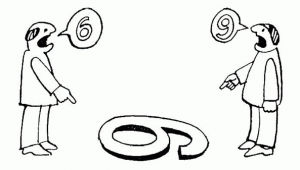The Power of Validation
People love to fix things, problem solve and make sense of. We especially like to do this when a problem isn’t our own but someone else’s. It just seems so easy to see where others are going wrong and we seem to know the exact thing a person could change that would fix all their problems. If they would just listen and just do as we suggest, we know for sure that they would be the happiest, most serene and well-adjusted person ever!
So why is it that people in our life won’t do as we so wisely suggest? The thing is, it’s all about the emotions. The way we feel about a situation is important and when we overlook that, it can be really difficult to solve a problem or deal with any difficult situation.
When we validate emotions, we show others that we accept them and we understand their emotional experience. We get where they are at, we show that the way they are feeling is valid regardless of usefulness or our perceptions of helpfulness.
Validation can be Simple
There are a number of things you can do to validate someone: It can be as simple to show the person that what they are saying matters by:
- Pay attention when someone is speaking;
- Make eye contact;
- Put the phone down;
- Turn the TV off;
- Pop multitasking to the side and sit and be present with your children;
- Nod along and ask questions when your partner tells you about their day;
- Also reflect back your understanding of what they’ve said. “It sounds like you’re really angry with your boss.”
Validation can also show a deeper understanding
You might have some understanding of the context of someone emotions. If you know that your child struggles with math, you can acknowledge this information when you’re validating their emotions surrounding an upcoming math test. “Given how difficult you’ve been finding math, it’s understandable that you feel really nervous about the test.” You might also want to acknowledge that someone’s emotional experience is normal and expected. “It makes sense that you are nervous, lots of people would find giving a speech to a crowd uncomfortable.”
Self- Validation
Me validate me? Yes indeed, you can (and should!) validate yourself. Taking the time to acknowledge that your feelings are valid and accurately reflect the context and history of a situation is important. You are showing yourself self-compassion and normalising your emotional experience.
Remember:
- Validation does not mean that you agree with the person, but it can help defuse an argument by showing another person you understand them
- Use validation with your friends, partners, children, co-workers, everyone!
- Use validation for yourself
- Validation is a very important skill in developing and maintaining quality interpersonal relationships and also shows that you care about other people
